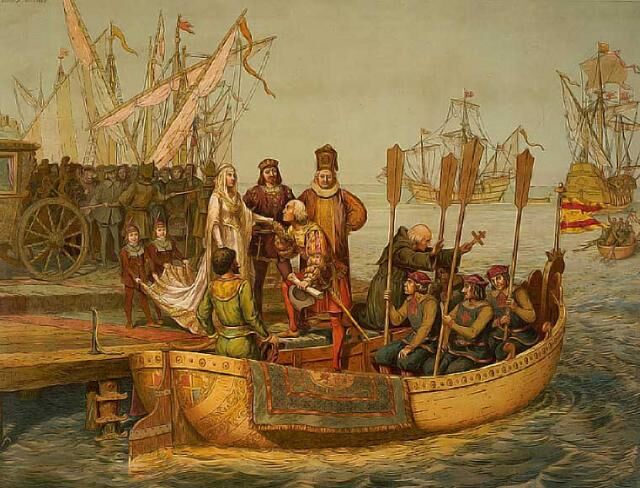Slug (identifier)
european-expansion-around-the-world
Content
Contenu
Corps
The capture of Constantinople by the Turks in 1453 made access to Asia more difficult for Western traders. The major European kingdoms (France, England, Spain and Portugal) began funding major explorations to find another route to Asia. Leaving Europe and heading west, the explorers discovered a whole new continent: America. The Europeans began to take possession of the lands of the New World, with harmful consequences for the indigenous populations. They were decimated by rivalry, war and disease, lost most of their land and many were reduced to slavery.
The Europeans set up trading posts and settler colonies all over America, creating a major trade network between the new colonies and their mother countries. This was the birth of a world economy.
Text
To find out more about European expansion around the world, consult the following factsheets:
Links
Title
Europe before the great explorations
Title
The Reasons for Major Explorations
Title
The Indigenous Peoples of America
Content
Links
Title
The Causes and Consequences of Major Discoveries (advanced concepts)
Title
The Great Explorers (advanced concepts)
Title
North American Indigenous Peoples (advanced notions)
Title
The Indigenous Peoples of South America (advanced notions)
Title
Mercantilism and Triangular Trade (advanced concepts)
Title
Spain's Conquests in America (advanced concepts)
Title
Portugal's Conquests in America (advanced concepts)
Title
France's Conquests in America (advanced concepts)
Title
England's Conquests in America (advanced concepts)
Title
The consequences of the Conquests in America (advanced concepts)
Title
An Influential Text: Machiavelli's The Prince (advanced concepts)
Title
Marco Polo (advanced concepts)
Title (level 2)
Exercises
Title slug (identifier)
exercises
